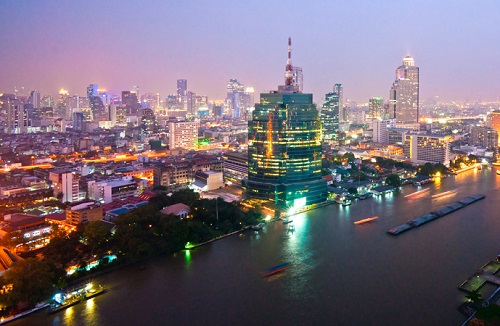The healthcare system in Thailand is modern, and, in most cases, you will have no problem obtaining your regular medications. Drug costs will usually be covered by your health insurance scheme, though you should always check for exceptions and limitations. As in much of the world, prescriptions are written by medical doctors, and you can obtain your medication from pharmacies, including hospital pharmacies.
If your doctor works at a private clinic or hospital, you will be given your medication when you pay. You will find that some medications that are prescription-only in your country of origin are available over the counter in Thailand. Prices are generally much lower than in the U.S., Canada and much of Europe.
Pharmacies are usually easy to find – they are marked with a green cross. It may help to write down the name of your medication and to find out its Thai name, as only around a quarter of Thais speak English (and often only to a basic level). Brand names differ around the world, so where possible, use the generic name of the drug.
You will find that many antibiotics, antimalarials, birth control pills, and thyroid medications are available without prescriptions in pharmacies. Not everyone who works in a pharmacy may be a qualified pharmacist, however, so ask to speak to one if you have any concerns about your medication. Bear in mind that you may be given instructions in Thai, so ask a Thai-speaking friend for help if necessary. After all, it’s important that you understand how to take the medication properly.

You will find large chain pharmacies in Thailand, including the British chain Boots, the Asian chain Watsons, and the local chain Goodwill. If you are worried about counterfeit medication, then use one of these, or ask for a recommendation from a Thai friend or colleague. You are more likely to find English-speaking staff in chain pharmacies, at least in major cities. Smaller pharmacies may have signs advertising English-speaking staff, too.
Qualified pharmacists will be able to advise you on the treatment of minor ailments and the management of common conditions, but they are not diagnosticians. If you have a more serious problem, you should see a doctor – your pharmacist may advise you to do this. Doctors at both clinics and hospitals can prescribe medicine.
If you have a pre-existing condition, you should take your medication with you to your first appointment to show to your doctor, as local brand names may be different. For some conditions, local practice may standardly prescribe a different medication to the one you are used to – for example, in cases of depression, Thai doctors tend to use amitriptyline, which is a tricyclic, rather than one of the SSRIs more familiar in the USA and Europe. Having your existing medication to hand will help ensure that you are prescribed the right thing.
Thai culture emphasises respect for trained professionals. Doctors at private clinics and hospitals are more likely to be comfortable discussing your treatment with you and answering questions. If you are worried about not receiving your familiar medication or the correct treatment, look for an English-speaking doctor who is used to seeing expats.
Hospitals don’t share records, so, if possible, try to stick with the same hospital or clinic. This will help to avoid delays or complications if you need a repeat prescription. You can fill your prescription at any pharmacy. You can also collect prescriptions for family members, as long as you have a piece of their ID to show to the pharmacist.

Should you have an existing medical condition, it is likely you will be able to find your usual medication, though the brand name may be different. You will be able to manage conditions like high blood pressure, high cholesterol and thyroid issues in much the same way as in your country of origin. Some thyroid medications are available without prescriptions as over-the-counter drugs.
If you are a type one diabetic, you should make finding a doctor a priority. Type one diabetes is relatively rare in Thailand, and, outside major cities, you may find it hard to obtain insulin in the form you are used to. Diabetes tends to be managed by injections, using a syringe or a pen, rather than an insulin pump, and prices can be relatively high (though still below those in the USA). You may also find it useful to contact the Diabetes Association of Thailand, who are based in Bangkok.
Medication in Thailand is subject to government licensing and regulation by the Thai Food and Drug Administration (TFDA). Before a particular drug can be sold, it must be licensed by the TFDA. There are, at present, no government regulations about the pricing of medical drugs and devices, except those on the National List of Essential Drugs prescribed in public hospitals.
Pharmacies and private hospitals set their own prices for medications, as long as these are not greater than the prices set by the distributors (the sticker prices). In most cases, you will pay a lot less for your medication in Thailand than elsewhere, even if you use a hospital pharmacy (which are usually the most expensive, in local terms). US expats, in particular, can expect to see a sharp drop in the costs of their medications.
The laws around certain drugs, in particular narcotics (such as codeine and fentanyl) and psychotropics (such as lorazepam, phenobarbital and temazepam), are very strict. If you need sleeping pills or strong pain medication, you must obtain these through a qualified medical doctor. Note that some pain medications, including oxycodone, are illegal in Thailand. Medical cannabis was legalised in 2019 for multiple sclerosis, epilepsy, side-effects of chemotherapy and some forms of pain management.
Useful links
For a list of medical pharmacies, click here. For a list of doctors in Thailand, click here.

